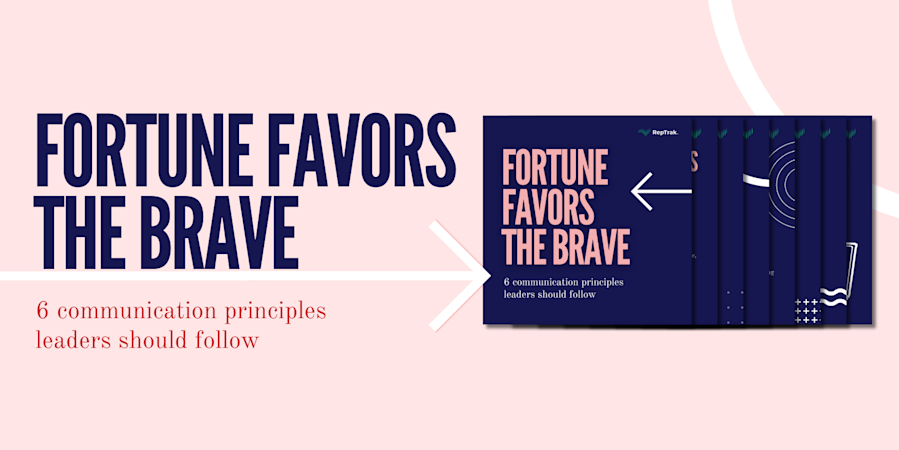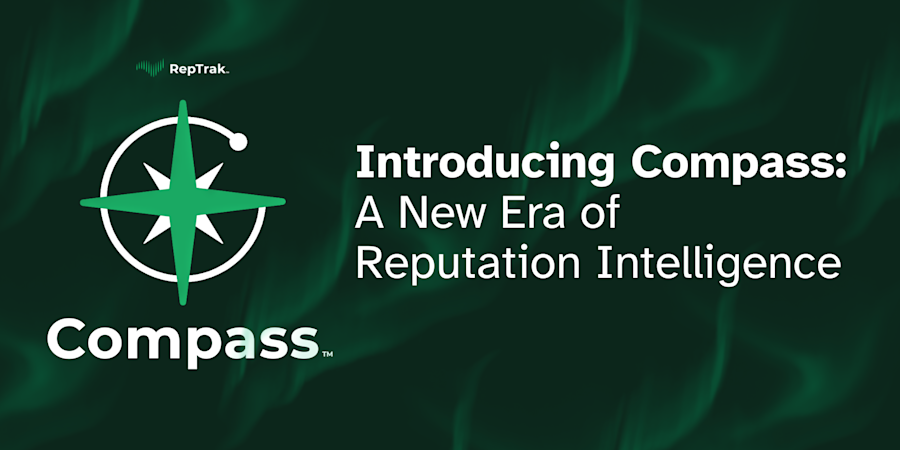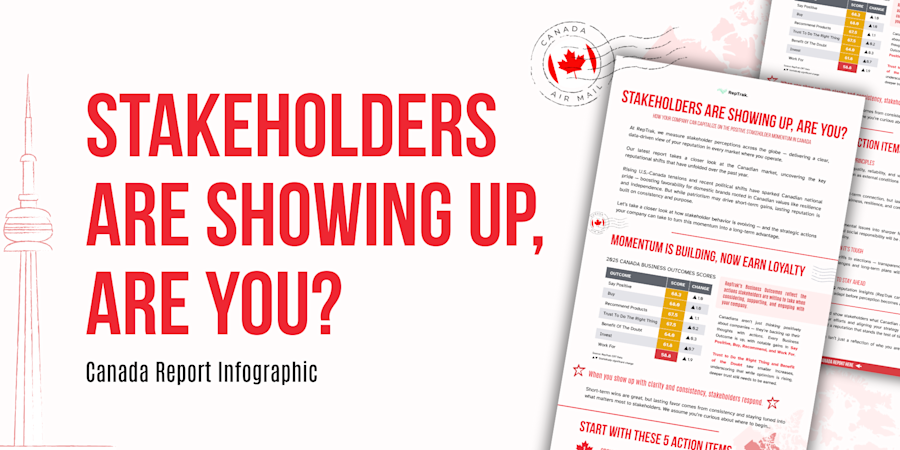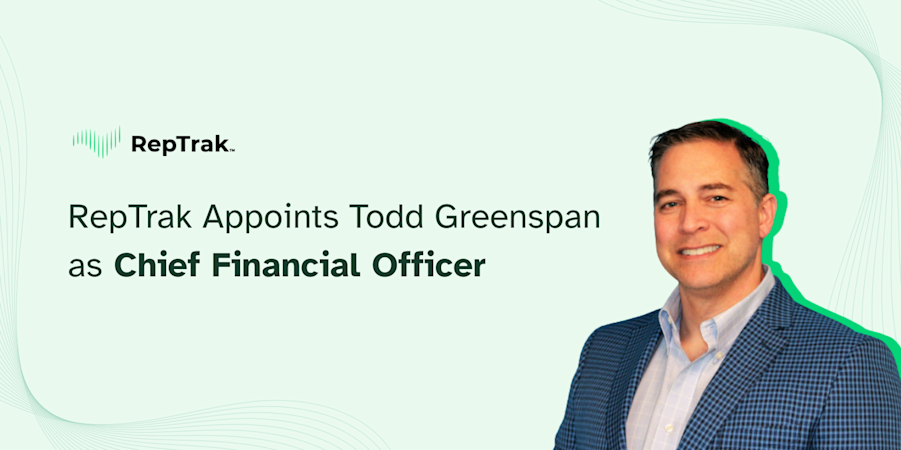This Month in Reputation: Coronavirus Disrupts Business and Bob Iger Steps Down
Blog Post06 Mar, 2020
The shortest month of the year packed quite the punch in 2020, with the COVID-19 epidemic impacting companies around the globe, major CEO shuffles in media and tech, and serious efforts across almost all major industries to harness the power of reputation to spur growth and build trust.
Coronavirus wreaks havoc
The outbreak of the Coronavirus, first in China, then in parts of Western Europe, and then in North America, has had serious impacts on companies of nearly all kinds. Among the effects of the disease: Apple announced lower revenue as travel restrictions in China, where much of its manufacturing takes place, has constrained supply for key products like the iPhone.
Alibaba and Airbnb face similar challenges, as China remains both a great producer of consumer products and a major consumer of goods and services from other countries. And other companies severely limited employees’ travel or canceled major events.
An epidemic like this one requires great trust in government and institutions, according to leaders in crisis communications. One country that has earned great kudos for its response, Singapore, has done so by being transparent, reassuring, and informative.
Meanwhile, the Mexican beer brand Corona has also taken a hit, though not due to any interruptions to its supply chain. Rather, the association between the brand name and the virus has discouraged some consumers from buying it, according to a recent survey.
Iger steps down at Disney
It was the beginning of the end of a (very successful) era as Bob Iger, CEO of the Walt Disney Co., stepped down on February 25, and announced he would be replaced by Bob Chapek, a 27-year veteran of the entertainment behemoth who currently oversees the parks division.
Iger was at the helm of Disney for 15 years, and oversaw one of the most lucrative and successful periods in the company’s history. While Iger was in charge, Disney shares surged by 371 percent, more than double the S&P 500’s 161 percent gain in the same period. Its market capitalization climbed by $174.95 billion to $231.44 billion. Just in the last 12 months, Disney completed its $71.3-billion purchase of 20th Century Fox’s assets, and debuted Disney+, its subscription-based streaming video service. And, it’s worth noting that the company appeared in the top 10 of our Global RepTrak study of the world’s most reputable companies for 10 consecutive years.
Iger still had 20 months to go on his existing contract, making his exit now all the more surprising. But it’s believed he wanted to ensure a smooth transition to his successor. This will avoid a repeat of four years ago, when Iger’s heir apparent, Thomas Staggs, was ousted before he could even assume the role. It also puts an immediate end to the uncertainty surrounding the succession plan, which had made the board nervous.
Iger will stay on through 2021 as executive chairman, lending some much-needed stability to the company during a time of great change.
Disney wasn’t the only company experiencing a transition this month: Salesforce co-CEO Keith Block has stepped down, leaving Marc Benioff as sole CEO; at Hulu (controlled by Disney), Chief Marketing Officer Kelly Campbell was promoted to President; and LinkedIn CEO Jeff Weiner announced he would will transition to executive chairman, in order to focus on the problem of diversity (or lack thereof) within the social network.
Wells Fargo finally settles fraud case
With the arrival of new CEO Charlie Scharf in October, Wells Fargo—a bank with a formerly sterling, but now seriously tarnished, reputation—has taken another step toward recovery. It agreed to pay $3 billion to settle a government investigation into its business practices.
In January, former CEO John Stumpf agreed to pay $17.5 million to settle charges against the bank, a rare example of a chief executive being held personally responsible for the conduct of a corporation he led.
"There's still more work we must do to rebuild the trust we lost," Scharf said regarding the settlement. "The conduct at the core of today's settlements—and the past culture that gave rise to it—are reprehensible and wholly inconsistent with the values on which Wells Fargo was built," he said.
BP and Bezos make commitments to climate change
Fossil fuel giant BP has announced a 10-point plan to reduce emissions, with the goal of reaching net zero by 2050—if not sooner. This includes offsets, as well as the investment in forms of energy other than oil and gas, though the company said it still expects to be refining oil in 2050, but in smaller volumes.
Elsewhere, Amazon CEO and founder Jeff Bezos, who was criticized for his relatively small donation to the Australia wildfires, has now pledged $10 billion to fight climate change.
“Climate change is the biggest threat to our planet,” he wrote on his Instagram account. “I want to work alongside others both to amplify known ways and to explore new ways of fighting the devastating impact of climate change on this planet we all share.”
It’s believed this action came about due to increased activism from Amazon employees, who, along with the employees of other tech companies, have pressured the company to take more action on climate change.
Speaking of employee activism, that’s what has led to the creation of a union at Kickstarter. This is the first of its kind in the tech industry, and it follows a year and a half of struggle, during which several leaders of the unionization drive were either fired or left the company.
Nike bets big on sustainability, while Coke rallies around purpose
Nike’s new CEO, John Donahoe, wants his company to take the lead on sustainability. He acknowledged that consumers increasingly care about sustainability, and want to slash their own carbon footprints, as they purchase apparel and footwear.
Nike’s efforts on the sustainability front include outfitting athletes at the 2020 Olympics in Tokyo with gear made from recycled polyester and ground-up shoe parts. Much of the new gear is undyed, leading some to refer to the aesthetic as “rawthentic,” but it is representative of the company’s new commitment to zero-waste production.
Meanwhile, Coca-Cola launched a huge new marketing campaign in Western Europe with the tagline “Everything is better when we’re open.” It’s meant to show that the brand will not shy away from “social issues,” though the company will not be taking a stand on controversial ones like Brexit or President Trump. It’s part of a new strategy for the beverage giant, whose marketing chief admitted it’s getting harder to connect with consumers in an increasingly complex world.
“You need to talk about your purpose (besides making money for your shareholders) and you need to create an experience,” Coca-Cola’s Western Europe marketing director Walter Susini said. “And lastly, you need to create talkability. If you don’t care you don’t share.”
A good example of the value of being talked about: Peloton’s much-maligned “Peloton wife” ad. Turns out, it may have actually boosted sales, despite online outcry.
Socially responsible investing benefits Microsoft; JetBlue makes its own commitments
Seattle software company Microsoft is the biggest beneficiary from the new trend toward investment into environmental, social, and governance-oriented (ESG) funds, according to a report from financial data company EPFR.
These funds have been screened to remove companies that engage in socially or environmentally damaging behavior, such as fossil fuel companies or companies without diverse leadership. They are particularly popular among millennials, who rate climate change and plastic reduction as among their biggest concerns, and who have shifted their money to these funds.
In related news, JetBlue signed a new loan agreement that gives the company a better rate the more socially and environmentally responsible its business practices are—a first for the airline industry.
“Our owners, many of whom are also crew members, want to see how ESG initiatives are connected to our financials,” said Sophia Mendelsohn, chief sustainability officer for JetBlue. “As the first airline to accomplish this type of transaction, we are directly linking our commitment to addressing environmental and social issues with our bottom line.”
This comes on the heels of several sustainability commitments by airlines, including Delta, which committed in February to spend $1 billion over the next 10 years to offset its carbon emissions. Air France and easyJet have made similar commitments.
Election 2020 is getting serious
Hundreds of U.S. companies are making sure their employees are able to participate in the 2020 election, including JP Morgan Chase, Target, and Hewlett-Packward. It’s part of the Time to Vote initiative, which aims to enlist 1,000 companies by November.
Citizenship is one of the key drivers of reputation, and these companies show that they understand the value of civic engagement for their employees as part of an overall reputation strategy.
Perhaps Shadow, the maker of the app used to tally results of the Iowa caucus, could take a page out of these other companies’ books. The developer had a disastrous debut, with results delayed or incorrectly tabulated. The company was criticized for developing such an important app on a shoestring budget and without sufficient testing.
Shadow did the right thing from a reputation management point of view by apologizing via Twitter a day after the Iowa caucuses. But time will tell if the company gets a second chance to make a good first impression.
What stories about reputation have been catching your eye recently? I'd love to know! Share your thoughts on social media using the hashtag #RepTrak.
Martin Lieberman Director, Content Marketing The RepTrak Company [email protected]






